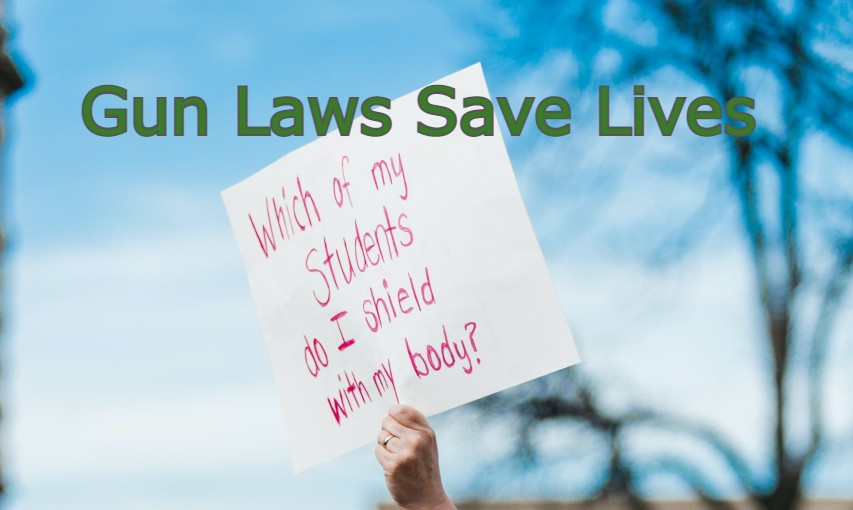
Extreme Risk Law Is Saving Lives in Colorado Two Years After Passage
Legislation temporarily removes firearms from those at high risk of harm to themselves or others
Two years after being enacted, Colorado’s law establishing Extreme Risk Protection Orders (ERPOs) has been a life-saving tool to reduce the public health epidemic of gun violence in Colorado. Newly released data show the frequency of the orders, which first became available in 2020, across the state. On the anniversary of the law’s implementation, Colorado gun violence prevention advocates are calling for increased education about the availability of the tool.
Colorado’s extreme risk law prevents gun tragedies by providing a process that law enforcement and family members can use to petition a court to temporarily remove firearms from individuals at an elevated risk of harm to themselves or others. In Colorado, temporary and final orders are available; the temporary order lasts up to 14 days after it is officially filed and the final order lasts 364 days.
Colorado became the 15th state to enact this life-saving legislation. As of January 2022, nineteen states and the District of Columbia have extreme risk laws in effect.
Gun violence is a serious problem in Colorado. Each year, around 850 Coloradans die from gun violence, and the majority of these gun deaths are suicides. Data also show that minoritized racial and ethnic groups are most impacted by gun violence.
“We must use every tool at our discretion to save lives,” said Eileen McCarron, president of Colorado Ceasefire Legislative Action. “Now that ERPOs have been accessible for the last two years, we must make it better known to potential petitioners so they too can save the lives of their loved ones.”
Newly released state data show that over 250 orders were filed in Colorado in 2020 and 2021, the first two years that the law was in effect. A thorough review of research on Colorado’s ERPO law shows that the tool has been used to prevent mass violence, suicides and domestic violence incidents.
Research also shows that most orders were filed by law enforcement and most respondents were non-Hispanic white males, even though under-resourced Black and Hispanic/Latino communities are most affected by gun violence. The reality is that not investing in these communities is an intentional choice by those who make decisions about funding and resource allocation.
“Easy access to guns significantly increases the risk of both firearm suicide and homicide,” said Lisa Geller, state affairs manager at the Educational Fund to Stop Gun Violence. “If ERPOs are equitably and efficiently implemented, they can stop many forms of gun violence in its tracks, particularly gun suicides and mass shootings, and prevent harm to the owner of the firearm and others.”
Colorado Ceasefire started advocating for this law with an interactive forum in May 2016 and has continued to educate stakeholders and potential petitioners of the benefits of using this tool since it passed the legislature.
The Colorado law is named The Deputy Zackari Parrish III Violence Prevention Act in memory of Deputy Parrish who died in an ambush on New Year’s Eve 2017. That shooting could have been prevented if an extreme risk law had been in place as the shooter was presenting threats to others prior to the incident. At the time, his mother had even tried and failed to remove his guns.
####
About the Educational Fund to Stop Gun Violence
The Educational Fund to Stop Gun Violence (EFSGV) develops and advocates for evidence-based solutions to reduce gun injury and death in all its forms. EFSGV uses a public health and equity lens to identify and implement evidence-based policy solutions and programs to reduce gun violence in all its forms and to make gun violence rare and abnormal. EFSGV is the gun violence prevention movement’s premier research intermediary and founder of the Consortium for Risk-Based Firearm Policy, a group of academics and practitioners who collaborate to develop innovative recommendations for policymakers.
About Colorado Ceasefire
Colorado Ceasefire, a statewide organization, has been working for freedom from gun violence since 2000. Ceasefire initiated and was instrumental in the enactment of the 2013 Colorado firearms laws, which included universal background checks, a high-capacity magazine ban, and domestic violence firearms relinquishment. Ceasefire began advocating for an Extreme Risk (red flag) law in 2016. Learn more at www.coloradoceasefire.org.
